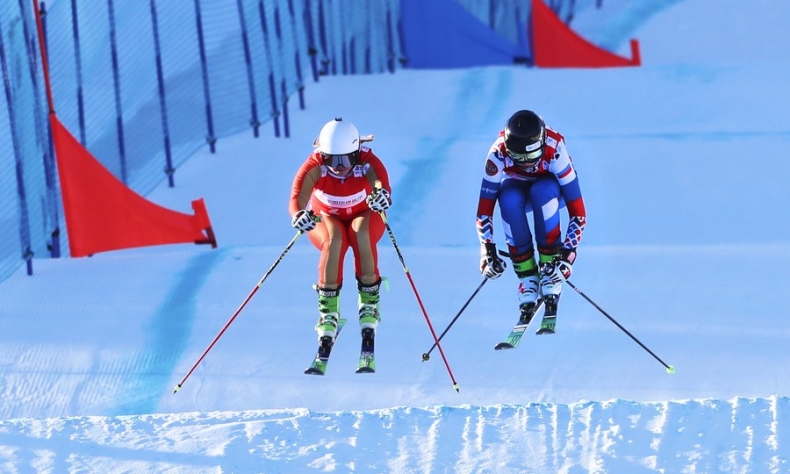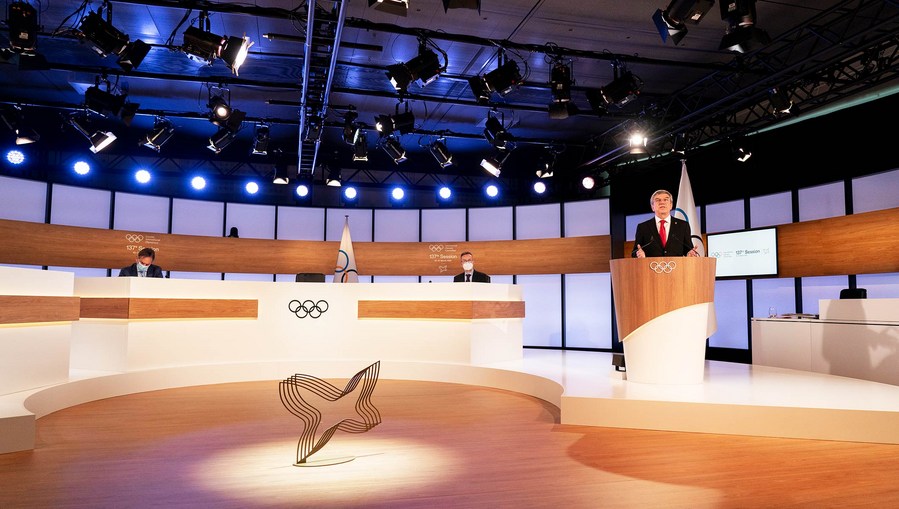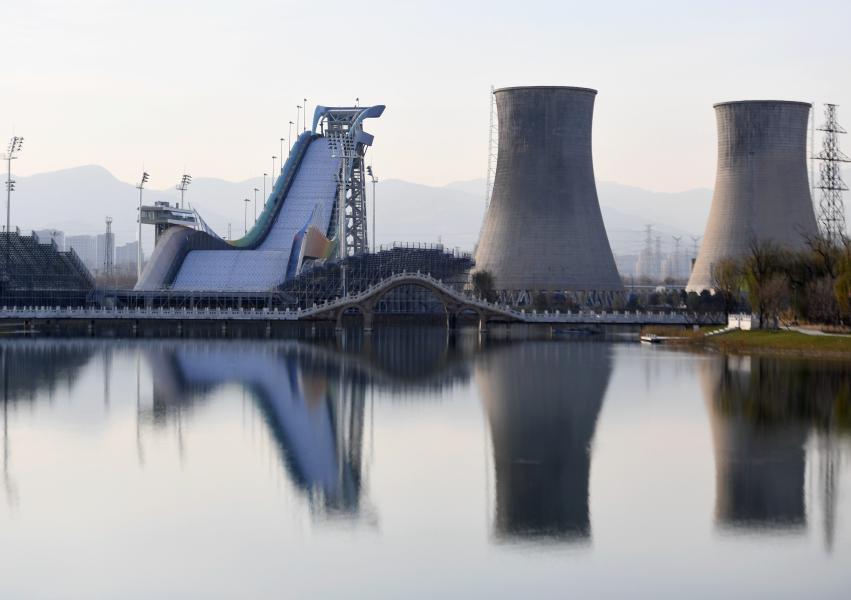When the Games Fall Victim to Political Prowess

Those who tried to blackmail China by threatening to pull out of the Olympic Winter Games may not understand that the Olympics are not a national sports meeting, but represent the entire IOC and all of mankind.
The world agrees that the Olympics mark a time when all political feuds are to be cast aside. For a long period, there was the ancient Greek legend of the Sacred Truce: When the Olympics were held, all city-states would cease warfare and compete on the athletic field united by the gracious spirit of sportsmanship. Yet more and more historians are telling us that the ancient Olympic Games were in fact not wholly exempt from all political infiltration and the arena would soon become a stage for confrontation, negotiation and city-state alignment.
As if history were repeating itself, the supposed purity of the modern Olympics has been steadily eroded by dogmatic dynamisms. From Nazi Germany’s use of the 1936 Berlin Olympic Games as a propaganda tool for their ideology to the current so-called Five Eyes Alliance spearheaded by the U.S. and Great Britain, who are using the 2022 Beijing Olympic Winter Games as a bargaining chip to pressure China into submission, politics has become the name of the originally athletes’ game over and over again.

“The Olympics are about diversity and unity, not politics and profit. Boycotts don’t work.” In October last year, Thomas Bach, President of the International Olympic Committee (IOC), wrote this in an article published by The Guardian, clearly opposing the politicization of the Games. Bach, who won fencing gold for the Federal Republic of Germany at the 1976 Montreal Olympic Games, ended his Olympic career as an athlete over the collective U.S.-led Western boycott of the 1980 Moscow Olympic Games.
The 1980 Moscow Games and the 1984 Los Angeles Olympic Games are the scars in Olympic history that can never be healed. Against the backdrop of the Cold War between the U.S. and the Soviet Union, the politicization of the Games reached its peak: The U.S. and its allies boycotted the Moscow Olympics in 1980 while the Soviet Union went on to shun the 1984 Los Angeles Olympics. Both boycotts seriously damaged the rights and interests of many athletes, and intensified the rolling confrontation and division in the world.
However, the relationship between China and the U.S. was on the up during those days of agile uproar. The Los Angeles Olympics denoted the first time the People’s Republic of China team participated in the Olympics. Despite the heavy presence of political factors, the positive side was that China, accounting for one fifth of the world’s population, finally joined the Olympic family and has never been absent since.
The 2008 Beijing Olympic Games tell yet another story. Like many developing countries landing their first-ever Olympic bid, China had high hopes of enhancing national self-confidence and presenting the world with the image of a new, modern China. Several Western countries attempted to use the “Tibet issue” as a reason to open fire on the nation. But they failed and the spirit of sportsmanship prevailed.

Today, China is gearing up for the 2022 Olympic Winter Games, and the mentality of the nation’s people has done a 180. China no longer needs to prove itself to the outside world by accommodating the international event. For China, the purpose of hosting these Winter Olympics is more to seize this opportunity to popularize ice and snow sports nationwide so that more citizens can benefit from participating in these athletic pastimes and engaging in their related industries.
Those who tried to blackmail China by threatening to pull out of the Olympic Winter Games may not understand that the Olympics are not a national sports meeting, but represent the entire IOC and all of mankind. The protagonists of the Olympic Games were, are and always will be athletes, not politicians.
“The Olympic Games cannot prevent war and conflict. Nor can they address all the political and social challenges in our world. But they can set an example for a world where everyone respects the same rules and one another. They can inspire us to solve problems in friendship and solidarity. They can build bridges leading to a better understanding among people. This way, they can open the door to peace.” Bach’s concluding words convey the hope that the future of the Olympic flame will truly light the way for athletes personifying the values of excellence, solidarity and peace, rather than a podium for political power games.
 Facebook
Facebook
 Twitter
Twitter
 Linkedin
Linkedin
 Google +
Google +










